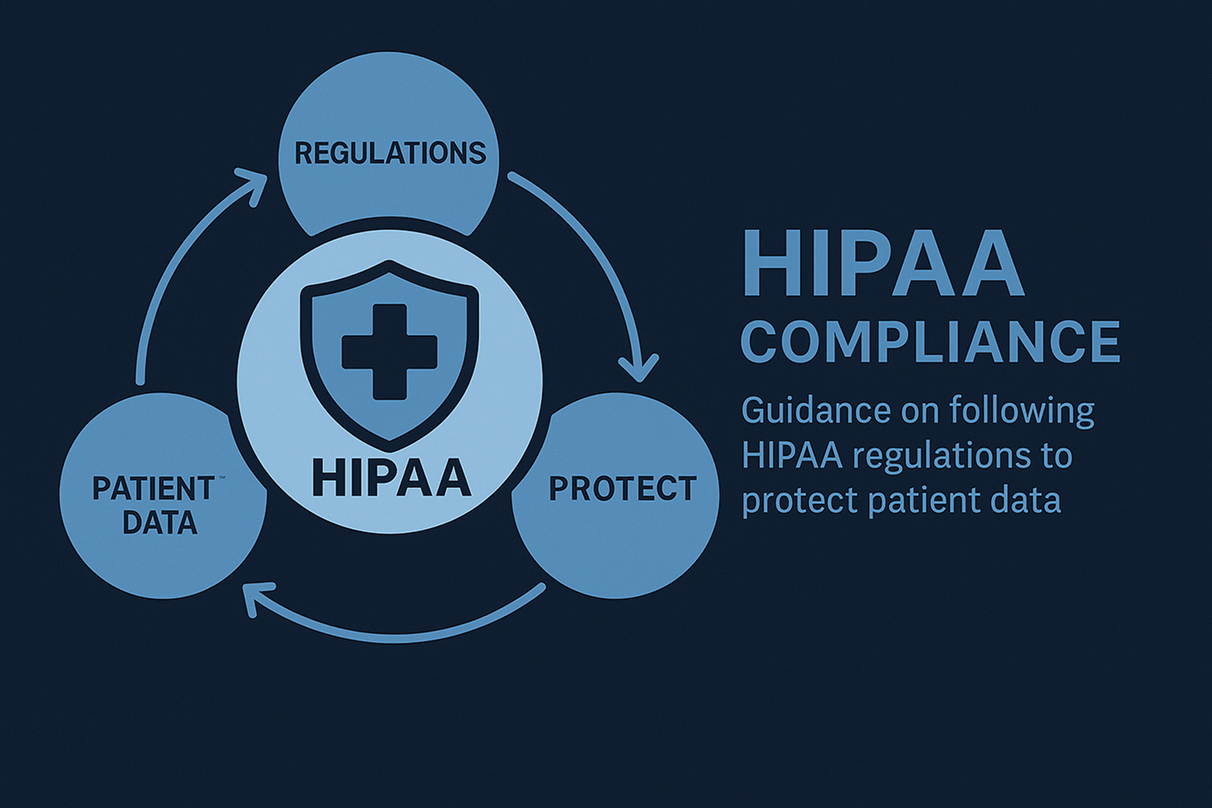HIPAA Compliance
Safeguarding Protected Health Information (PHI) in the U.S. Healthcare Ecosystem
The Health Insurance Portability and Accountability Act (HIPAA), enacted in 1996, establishes national standards for the protection of sensitive patient health information. HIPAA compliance is mandatory for covered entities and their business associates that handle protected health information (PHI). The U.S. Department of Health and Human Services (HHS) oversees HIPAA enforcement through its Office for Civil Rights (OCR).
HIPAA's primary objective is to ensure the confidentiality, integrity, and availability of PHI while allowing the flow of health information necessary to provide high-quality health care.
HIPAA compliance is structured around several interrelated rules:
Privacy Rule:
Establishes standards for the protection of individuals' medical records and other personal health information. It applies to health plans, healthcare clearinghouses, and healthcare providers that conduct certain healthcare transactions electronically.
Security Rule:
Specifies safeguards that covered entities and their business associates must implement to protect electronic PHI (ePHI). It encompasses:
- Administrative Safeguards: Policies and procedures designed to clearly show how the entity will comply with the act.
- Physical Safeguards: Controlling physical access to protect against inappropriate access to protected data.
- Technical Safeguards: Technology and related policies that protect ePHI and control access to it.
Breach Notification Rule:
Requires covered entities and business associates to provide notification following a breach of unsecured PHI.
Enforcement Rule:
Establishes guidelines for investigations into HIPAA violations and sets civil monetary penalties for non-compliance.
Omnibus Rule:
Implements a number of provisions of the HITECH Act to strengthen the privacy and security protections for health information.

HIPAA compliance is mandatory for:
- Covered Entities: Health plans, healthcare clearinghouses, and healthcare providers that transmit health information electronically.
- Business Associates: Persons or entities that perform certain functions or activities on behalf of, or provide certain services to, a covered entity that involve the use or disclosure of PHI.
To achieve and maintain HIPAA compliance, organizations must:
- Conduct regular risk assessments to identify potential vulnerabilities.
- Implement appropriate administrative, physical, and technical safeguards.
- Develop and enforce policies and procedures addressing PHI protection.
- Train workforce members on HIPAA policies and procedures.
- Establish contingency plans for responding to emergencies or data breaches.
- Ensure business associate agreements are in place and compliant.
Non-compliance with HIPAA can result in significant penalties:
- Civil Penalties: Fines ranging from $100 to $50,000 per violation, with an annual maximum of $1.5 million, depending on the level of negligence.
- Criminal Penalties: Fines up to $250,000 and imprisonment up to 10 years for willful neglect or malicious intent. Recent legal developments have introduced stricter enforcement measures, including mandatory practices such as encryption, multifactor authentication, and social engineering training.

Resecurity offers comprehensive solutions to assist organizations in achieving and maintaining HIPAA compliance:
- Risk Assessment Tools: Identify and mitigate potential vulnerabilities in handling PHI.
- Security Solutions: Implement advanced security measures, including encryption and access controls, to protect ePHI.
- Compliance Monitoring: Continuous monitoring to ensure ongoing compliance with HIPAA regulations.
- Training Programs: Educate staff on HIPAA requirements and best practices for PHI protection.
- Incident Response Planning: Develop and implement strategies to respond effectively to data breaches or security incidents.
Ensuring HIPAA compliance is an ongoing process that requires vigilance and proactive measures. Resecurity is committed to supporting organizations in navigating the complexities of HIPAA regulations and safeguarding sensitive health information.
Contact Resecurity today to learn more about how we can assist you in achieving HIPAA compliance.

Los Angeles, CA 90071 Google Maps

